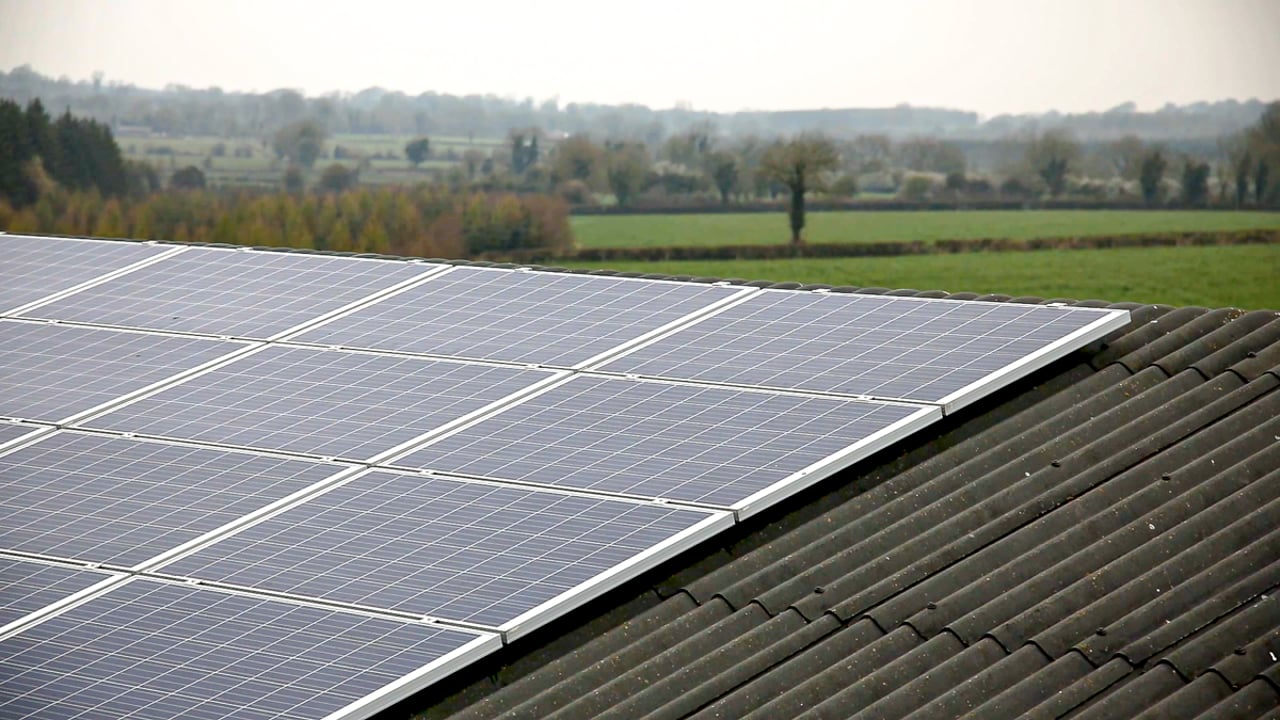Call for higher incentives for farmers to generate renewable energy
The Irish Solar Energy Association (ISEA) has set out its key asks for the next government, including higher incentives for farmers to generate and use renewable energy on farms.
In its manifesto, the ISEA details "critical actions" for the next government to advance Ireland’s transition to a carbon-neutral economy by 2050. This includes the creation of a framework combining agriculture with renewable energy.
The ISEA said the next government needs to support "agri-voltaics", and ensure that the agricultural community and food security are prioritised and supported during the transition to a carbon-neutral economy.
The ISEA's manifesto highlights that agriculture is the primary land use in Ireland. The association states that agriculture and renewable energy are not mutually exclusive, but that they can be combined to "great effect":
"European and national studies show that combining land use for solar power generation and agricultural production can increase renewable energy, increase farming incomes, reduce emissions and support security of food supply."
To achieve this, the ISEA said higher incentives must be offered to farmers to generate and use renewable energy on-site, and tax structures must be reviewed and updated to ensure they fully support mutual renewable energy and agricultural land use.
The ISEA’s priorities include maintaining support for renewable energy initiatives, improving planning systems, enhancing electricity network capacity, and ensuring continued development of rooftop solar and utility-scale projects.
"Solar energy is not just about clean electricity. It’s about creating jobs, supporting communities, and safeguarding Ireland’s future," said ISEA’s director of policy and regulation, Dr. Eva Barrett said.
"This manifesto outlines the steps the next government must take to ensure we meet our climate goals while delivering real benefits for society," Barrett said.
The key asks set out by the ISEA for the next Dáil are:
- Adequate renewable energy supports: Grants, tax incentives, and energy pricing that includes everyone in the clean energy transition;
- Planning and network infrastructure: Build, operate, and connect enough capacity to electrify and decarbonise Ireland’s system;
- Sustaining key structures: Retain and enhance the Accelerating Renewable Electricity Taskforce (ARET), and keep the Infrastructure, Climate and Nature Fund (ICNF) focused on climate measures like retrofits and infrastructure;
- Future-proofing renewable development: Introduce a successor to the Renewable
Electricity Support Scheme (RESS) and invest in energy storage solutions; - Workforce development: Develop a 'Carbon Zero 2050' skills strategy to equip the
workforce for clean energy careers; - Resourcing: Allocate enough resourcing to make a "carbon-zero" Ireland a reality.
The ISEA represents over 160 international, regional and domestic solar providers, and works collaboratively with government and industry to achieve 8GW of installed solar capacity by 2030 as set out in Ireland's Climate Action Plan.





